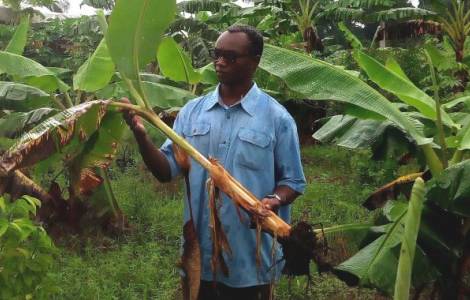
Internet
Douala (Agenzia Fides) - Teaching to grow bananas to promote micro-entrepreneurship projects, but also to save bananas from extinction. This is the project launched in Douala by the Jesuits of Cameroon. An initiative that has a dual value, formative and naturalistic, in a difficult context which characterizes the African country.
In Cameroon, over three million boys and girls did not reach the minimum level of school education. 70% of girls are illiterate. This phenomenon is particularly visible in the northern regions, where over one million girls between the ages of 10 and 19 cannot read or write (31.9% of girls in the region).
In order to cope with this situation, the West African Jesuit Development Office has decided to pass on to these young people agricultural techniques that can be useful as a basis for building micro-entrepreneurial projects. The Jesuits have organized a course on how to cultivate banana trees through the Pif method, that is the cultivation of plants starting from stem fragments. It is a very efficient banana propagation system. This technique has the advantage of being carried out by local producers who use plant materials to which they have easy access at low costs. The yield is excellent. It is possible to produce between 10 and 30 plants from a single stem. The bananas obtained are strong and healthy plants.
The Jesuit course was divided in two sessions. The first was dedicated to theory. The second part was dedicated to the germination of seedlings. Some students have already started to put into practice what they have learned.
"This new technique - explains Robert, one of the students - is simple, cheap and fast. I have a small plot of land and I intend to plant at least four thousand seedlings. If my project is successful, it could become a good business for me".
The technique could also have important repercussions on the survival of the banana tree that risks becoming extinct. To alarm was launched, at the end of 2017 and again in June 2018, by several environmental organizations. In fact, a mushroom is apparently destroying entire plantations in Latin America and Asia. Being able to reproduce plants in safe places could therefore give a future to bananas, at least in Africa. (EC) (Agenzia Fides, 2/8/2018)